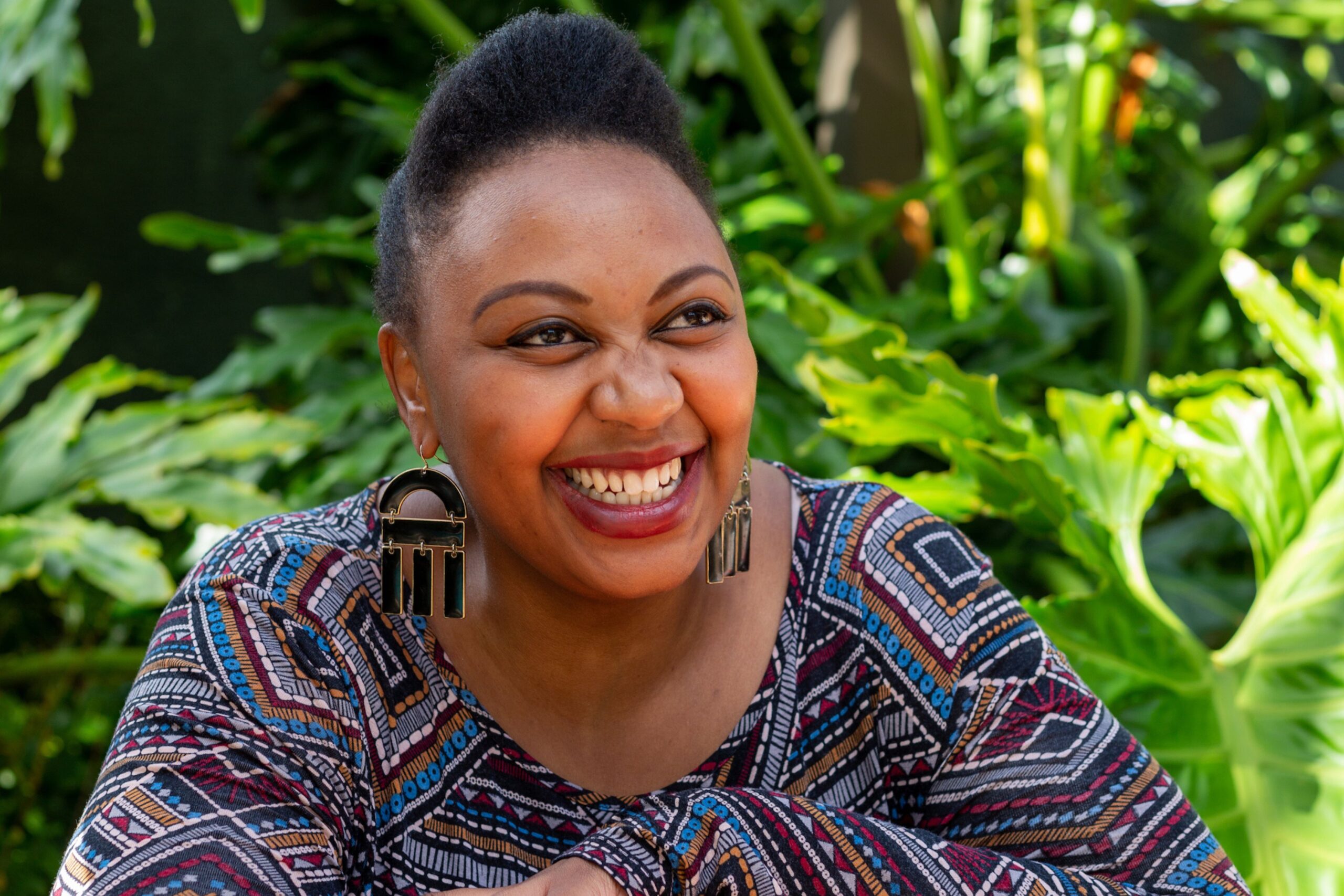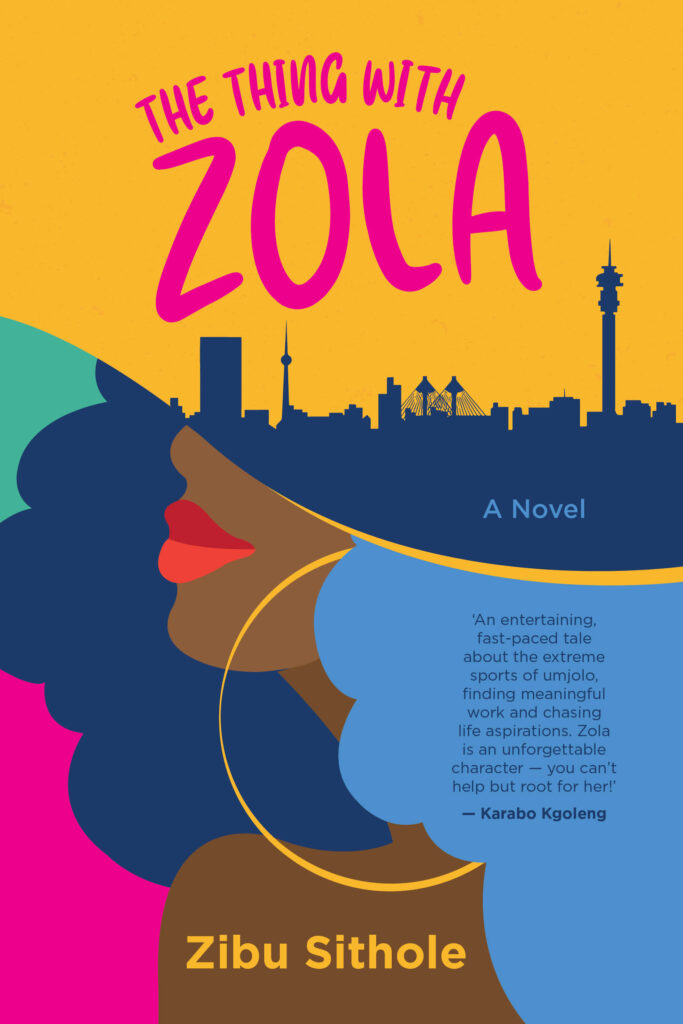
ZIBU SITHOLE RELEASES NOVEL THE THING WITH ZOLA INDEPENDENTLY
Journalist and storyteller Zibu Sithole has independently released her romance novel dubbed The Thing with Zola, which is the first she has released independently.
The novel follows a twenty-nine-year-old free spirited lady whose life has been a whirlwind of bursaries and opportunities in Europe, providing her an escape from life back in Mzansi. A decade of studying and working abroad has shaped her dreams and deepened her love, but when her visa finally expires, she’s left with no choice but to bid farewell to the life she’s crafted in Germany.
Zola eventually returns to her hometown of Jozi, a place that now feels unfamiliar and enigmatic. As she grapples with the complexities of her newfound reality, and makes a few mistakes along the way, readers will be captivated by her resilience and charm.
Zibu, who hails from Thokoza, has been a storyteller for over a decade, with experience writing for TV, radio, print and digital media. She is also the secret pen behind some of your favourite romance novels.
The Thing with Zola is described as a rollercoaster of humour, sizzle, and heart.
What books/films/TV made the biggest impressions on you with regard to romantic relationships and love?
The greatest influence on my ideas of romance and relationships is my parent’s relationship. Unfortunately, it has ruined real relationships for me, they set the bar really high.
Another strong and early influence was soapies. All the older women in my life have at one point or another been dedicated to a soapie and followed all the drama religiously. Days of Our Lives, the Bold and The Beautiful, Sunset Beach, Generations, Muvhango and drama series I first watched as a child like Kwakhala nyonini gave me a taste of how dramatic and tumultuous romance could be. Not as simple as Disney said it was.
My first literary crush was Odenigbo (Chimanada Ngozi Adichie, Half of a yellow sun) . I still think of him and strive to write characters someone could feel as strongly about. I read the book first because everyone was or had read it, and then again because even though I have never been to Nigeria, have never been married and have very little in common with the characters I could somehow still relate and be moved by their ‘lives’.
Peace Adzo Media (His only wife), Bolu Babalolo (Love in Colour) and Dud Busani- Dube (Hlomu series), Angela Makholwa (The Blessed Girl) and many others have all moulded my idea of contemporary romance and the context in which our fictional people fall in and out of love.
This is not your first book but your first published in your name. How are you feeling about it?
Ghost writing is so much easier because as soon as you hit send on the manuscript you can forget about the book. It’s not your story, not your name and what happens to it is none of your business. This book is actually mine. Seeing my name on the mock covers sent me into an imposter syndrome frenzy which was unexpected, because this isn’t the first book I’ve written, I write books for a living. But this is my book, my ideas, my imaginings and my name on the cover. It’s a lot like sending your child to school for the first time. You know she’s beautiful, funny and entertaining, but you’re also really anxious about whether people will get her and like her.

What did you enjoy the most and the least about ghostwriting?
Being anonymous gave me the confidence to play with style, experiment and learn along the way without fear of judgment. What I don’t like about it is how limiting it can be. The story is not mine, I can’t let it unfold the way I want it to, there is a formula and a storyline to follow and it can be frustrating.
What do you think sets your romance novel apart from others in the genre?
What African Romance authors have done better than other writers around the world is write their love stories in context. It’s never in a vacuum, life is always going on while our characters fall in love. ‘The Thing with Zola’ is set in today’s South Africa and explores the reality of young South African’s falling in love. What sets this novel apart is that it shows a gentle love, it has its issues but it is the soft, feathery love we often see reserved for white characters in movies and books. We are more than ‘imbhokodo’ and there is so much more to black love than suffering and persevering, it’s important that we see it and know it so we can choose it for ourselves.
If you could choose a hashtag to describe your book, what would it be?
#Itscomplicated
What themes does your novel explore, and how do they resonate with contemporary readers?
Although the issues are not the center of the plot, circumstances relating to youth unemployment, nepotism, corruption and the growing social and economic divide between the haves and the have nots create the circumstances around the plot making it a story that could happen to you or someone you know. Zola and Mbali’s Romance is, in a way, cross-cultural because the political elite and ordinary South Africans live very different lives.
How did you approach developing your characters? Are they based on real people or entirely fictional?
My characters are fictional, but I do borrow traits from people I know or have met. I pick things up from people’s conversations in taxi’s, at restaurants and other public places that sometimes stick with me and morph into an entire story on the page.
Briefly describe the three main characters in the book?
*Zola is a little stuck up and has lived most of her life with blinders on, hyper focused on a life in Europe. She is driven and demanding not only of the world but of herself too. She works really hard to build the life she has always dreamed of and just when it is within reach it all falls apart and she has to come back to South Africa, bitter and resentful.
*Mbali is rich, handsome, charming… practically perfect, but he is a mama’s boy. On the surface has always had an easy life, but money has not brought him happiness. He has everything on a silver platter handed to him by his father, but he wants to make his own name. Mbali is rebelling from the perfect life his parents have planned out for him and doing things his own way.
*Okuhle is a princess used to getting everything she wants. Even though she can sometimes be a brat (even as a grown woman) she genuinely wants to do the right thing. Okuhle is a hopeless romantic and doesn’t know when or even how to quit. When faced with adversity she doesn’t know
What particular emotions do you want your novel to evoke in your readers?
I hope readers share the mix of excitement and uncertainty that comes with new love. Through the pages I hope to evoke a range of emotions from including the unavoidable cringe.
Romance often involves intimate scenes. How did you approach writing those moments with sensitivity and authenticity?
With ‘The thing with Zola’ things are pretty much PG, which is what felt right as I was writing. I did not want to steal from the story by going all the way just for the sake of it.
Generally, though, I try to write intimate scenes in the most natural way possible. I gently build up to it and make it a part of the story rather than throwing into an unexpected scene that is both uncomfortable to write and read. Having dabbled in erotica I’ve grown comfortable with building that giddy tension, something that freaked me out in the beginning. The most important thing for me is for everything to happen and feel natural. Another thing that is important is the difference between intimacy and sex. There are tender moments that can make an even greater impact than a full on explicit scene. Imagining yourself in those situations and putting myself in the character’s shoes and in their mood informs how I write.
In romance, the “happily ever after” ending is a staple. Without giving away spoilers, can you talk about how you approached crafting a satisfying conclusion?
Accepting that women (first) and people in general can be happy and sometimes even happier without the big wedding, and without the partner opens you up to an infinite number of happily-ever-after. Romance used to be based on the same formula fairy-tales. That’s changed and I think readers look forward to cheering the protagonist on as they choose what’s best for them more than they do for the traditional happily ever after.


